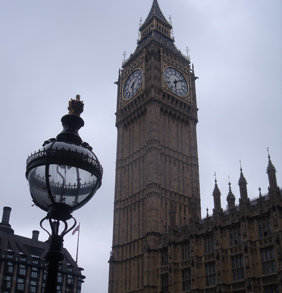As outlined in the Queen’s Speech to Parliament on May 18, the Policing and Crime Bill will require emergency services to collaborate and make provision for Police and Crime Commissioners (PCCs) to manage fire and rescue services in their areas.
LGA comment
Jeremy Hilton, Chair of the Local Government Association’s Fire Services Management Committee, which represents 48 fire and rescue authorities in England and Wales, said: “Fire and rescue authorities have been collaborating with other emergency services for a long time and further progress is being made with ongoing partnership work. On governance, councillors already do a superb job in running fire and rescue authorities. The LGA believes it should stay that way.
“PCCs should only run fire and rescue services where there is a robust business case setting out the advantages of doing so, which is supported by all sides and has the support of local communities. PCC take-overs could involve a lengthy bureaucratic process – for example, through the need to alter governing boundaries – which do not deliver worthwhile improvements over what can be achieved through collaboration.”
And proposed in a Counter-Extremism and Safeguarding Bill are extremism disruption orders to restrict those trying to radicalise young people, banning orders for extremist organisations which seek to undermine democracy or use hate speech in public places, and powers for councils to close down premises used to support extremism. The Conservatives plan to consult on powers to enable central government to intervene where councils fail to tackle extremism.
At the civil liberties campaign group Liberty, Rachel Robinson, Policy Officer, said: “We already have criminal law to deal with terrorism, hate speech and the incitement of violence, so all that’s left for these proposals to ban are people and views that the Government disagrees with. Powers to radically curb free speech will be placed in the hands of ministers who paint their political opponents as extremists and ‘threats to national security’.
“The fact that the Government is still struggling to define the ‘extremism’ they want to ban should be a clear indication that this legislation has no place in a liberal democracy.”
Simon Blackburn, who chairs the LGA’s Safer and Stronger Communities Board, said: “Councils have built up considerable experience in dealing with extremism and the impact of extremist activity on their communities. Local authorities now need help with the resources they need to build local capacity to counter extremist activity.
“With the Prevent Duty introduced last year, the Counter-Extremism Strategy published last October and the Louise Casey review about integration on-going, councils are working with a number of different government departments and Whitehall also needs to join up and bring together these different programmes in a way that works better for local authorities.
“Further legal powers will help to tackle some extremist individuals and organisations and with protecting communities from them. However, on their own they aren’t the solution and more resources and better guidance is also needed.
“Preventing people from being radicalised and engaging in extremist activity means understanding and building relations with communities, and a better understanding of the reasons why some people are vulnerable to radicalisation and what can be done to make them more resilient to extremist views and propaganda. This requires sustained work over time by councils working with schools, police and local communities who know and understand the areas they are working in, and have the freedom and flexibility to respond to local circumstances.”
A Criminal Finances Bill will introduce legislation designed to tackle corruption, money-laundering and tax evasion, making a new criminal offence for corporations who fail to stop their staff facilitating tax evasion. The aim; to target entities that carry out money laundering instead of individual transactions; and to provide the National Crime Agency (NCA) with new powers. And a National Citizen Service Bill proposes to expand that service for young people.
More details
For the LGA visit: http://www.local.gov.uk/. For the House of Commons debate on the Queen’s Speech visit http://www.parliament.uk/business/news/2016/may/mps-debate-the-2016-queens-speech/.










